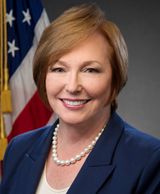Article
CDC Director Brenda Fitzgerald Resigns Amid Tobacco Investments
Author(s):
Fitzgerald reportedly purchased stock in Merck & Co., Bayer, Humana, and the US Food Holding Co., after starting the role as CDC director.

Brenda Fitzgerald, MD
Brenda Fitzgerald, MD, has resigned her post as the director of the Centers for Disease Control and Prevention (CDC) due to controversy amid reports that she traded in tobacco stocks while leading government anti-smoking efforts with the CDC’s Office on Smoking and Health (OSH)
Fitzgerald’s resignation was announced in a statement by the Department of Health and Human Services (HHS) via its newly appointed secretary, Alex Azar, stating that “complex financial interests that have imposed a broad recusal limiting her ability to complete all her duties as the CDC director.”
“Due to the nature of these financial interests, Dr. Fitzgerald could not divest from them in a definitive time period,” the HHS statement continued. “After advising Secretary Azar of both the status of the financial interests and the scope of her recusal, Dr. Fitzgerald tendered, and the Secretary accepted, her resignation. The Secretary thanks Dr. Brenda Fitzgerald for her service and wishes her the best in all her endeavors.”
HHS did not comment on the nature of her trading these stocks.
Documents obtained by Politico showed that the stock was acquired by Fitzgerald after her succession to the top position of the CDC in July 2017. These stocks were just one of around a dozen of investments made by Fitzgerald in that period.
Fitzgerald was reportedly also trading in food and drug companies, raising multiple flags regarding the ethical norms of a public official in her position. According to the Politico report, the trading included purchases between $1001 and $15,000 of stock in Merck & Co., Bayer, and Humana, and between $15,000 and $50,000 in US Food Holding Co.
She reportedly owned stock in Japan Tobacco, and prior to becoming director of the CDC—while still serving as the Commissioner of the Georgia Department of Public Health—owned stock in Reynolds American, British American Tobacco, Imperial Brands, Philip Morris International, and Altria Group Inc. Her ownership of these stocks were all considered legal under Georgia's ethics laws.
Fitzgerald had made tobacco cessation a top priority even prior to working at the CDC. Several ethics experts and attorneys have lamented the situation, with one describing it as “tone deaf” to Politico.
Earlier this month, despite being at the helm for more than 7 months, Fitzgerald had been denied the ability to comment before Congress regarding the CDC's intentions for cancer detection and facets of the opioid crisis—pressing concerns for the US health care sector—due to financial conflicts of interests based on investments made by her husband in GW Ventures and Greenway Messenger.
MD Magazine has reached out to OSH and CDC for comment.
Related Coverage >>>
Amazon, Berkshire Hathaway, JP Morgan Chase Announce Plans for Health Care Initiative
CVS Eyes Localized Health Care With $69 Billion Aetna Purchase
"I Think It's Time": Physician Retirement the Way You Want It





